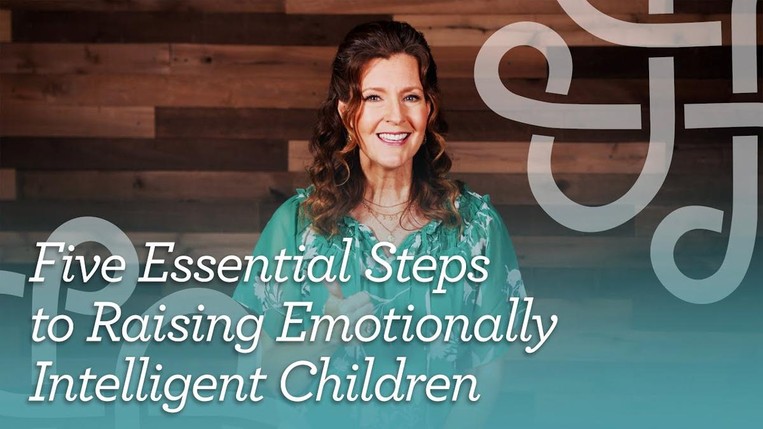Raising a Family in a Fishbowl
Davette Bishop - June 8, 2021

In this week's blog, Davette Bishop shares her experiences raising her children as a pastor's wife, navigating through obstacles, and battling her own insecurities. Her personal testimony guides us through the importance of examining our hearts when raising a family and knowing our identity as children of God.
I recently asked our adult daughters about growing up as pastor’s kids. Did they feel people were watching their every move as if they were in a fishbowl? Our oldest said, “Mom, we didn’t live in a fishbowl – you did.” I wondered what she meant.
She was born one year after my husband joined the pastoral staff of our church. The church family showered us with gifts and lots of attention. I felt loved and looked forward to raising our children in this community of faith. We invited the church family to hold us accountable and support us at a parent-child dedication service. I felt the weight of this, especially as I considered my husband’s public position. I wanted to be exemplary in parenting. I wanted children who never strayed from following Jesus. Well-meaning as these aspirations were, they had a shadow side - my sinful desire to look good and not disappoint anyone.
That first year of parenting, I was convinced I let everyone down when I developed a horrible infection and stopped breastfeeding. Other mothers were paged during church to return to the nursery to feed their babies, yet I sat through service as my child was given a bottle with formula. I felt as though I failed mothering and the whole church knew. When helpful ladies offered advice on how I could try breastfeeding again, instead of being encouraged by their care, I felt worse.
I appreciated the love and support that came with our role as a ministry family, but I also felt pressure to meet expectations. I felt burdened to please others and wondered if I would pass it on to our children. “What kind of pressure will our kids feel?” “How do we raise our daughter to understand that it is more important to know her position as a child of God than the child of a pastor?”
It was overwhelming.
When our second daughter was born, I conquered breastfeeding; yet the burden to meet expectations did not go away. It was evident the problem was not in other people’s standards but my own. I mistakenly thought if I parented a certain way and did the right things - whatever those were - our children would be perfect. Like a baker who makes sugar cookies with a cookie cutter, I thought I needed to find the right shape and press it into the dough to produce the right image.
I turned to Scripture to that “pattern” and found something far more helpful.
1. I found God--a Father who loves me not because I meet expectations--but because He is loving. As a parent, the most important discipline is toward my own heart, to keep me anchored in my identity as a child of God. This is the primary relationship in my life - not my role as a pastor’s wife, mother, or church member. I need to live before him; he is the real audience and the only one I need to please. If you feel your every move is seen and evaluated by people in your ministry, I encourage you to talk with the Lord about this. Examine your heart. Are you living in a fishbowl, trying to maintain an image for others, or enjoying your position as a beloved child of God? Reflect on Romans 8:38-39 & 1 John 4:15-18.
2. I found many principles, but few directives. Over time my husband and I made a list of scriptural parenting values and distilled them down to a few easy-to-remember standards. We organized this into a family mission statement and hung it on our living room wall. As we raised our daughters, we regularly talked about these values and used them in our decision-making. Whether we were considering the movies our children watched with friends or what church activities we would require them to attend, this offered a helpful grid to guide us. The pressure to please others did not go away, but this mission statement gave clarity and helped focus us on God’s standards. As you seek to please him in your parenting, are there a few overarching values on which he wants you to focus? Write these down. Talk about them. Apply them. Consider the principles in Matthew 5-7, John 15 & 1 Corinthians 13.
3. I found timeless prayers for my children. In the epistles, Paul prays for people much like a father interceding for his family. I made a list of these prayers and used them to focus my conversations with God about my family. These help me center on eternal things rather than just this moment or the pressure to please someone. Do you want a few prayers to get you started? Begin praying Ephesians 3:16-19, Philippians 1:9-11, & Colossians 1:9-12.
4. I found even God has children who need grace. In the Bible our heavenly Father is constantly dealing with rebellious children. Through His example I am reminded I cannot control outcomes. I may face heartbreak as a mother. My parenting will disappoint others. Even if I were the ideal mom, my children have their own wills and unique journeys with God. God does not guarantee it will go smoothly but He does guarantee grace to meet us in our journey. Do you need to surrender your children to God and entrust them to His care? Remember He is parenting you as you parent them, see Romans 8:14-17 & 2 Corinthians 4:7,17-18.
“Mom, I didn’t live in a fishbowl--you did.” I asked our daughter what she meant. She explained, “Most of the time you kept me from feeling the pressure of everyone’s expectations for a pastor’s kid. You modeled that my relationship with God was about knowing Jesus, not nice behavior.” I silently thanked the Lord. My parenting limitations have been more than covered by his grace!

Davette Bishop
Davette Bishop (‘89) serves in lay ministry. While she teaches Good News Club and is trained as a Disaster Relief Chaplain, her greatest joys are making women into disciples and training Bible study teachers to minister in the local church.
Davette and her husband, Robert, have been married for over 30 years. Both attend Redemption Hill Church in Whittier, California, where Robert is Senior Pastor. They have two wonderful daughters: Amanda who works with HOPE International in Kigali, Rwanda, and Kirstin who is a 4th-grade teacher in Southern California.

 17 Ways To Make Your Kid's Day
17 Ways To Make Your Kid's Day
 "Dads are Dispensable": 5 Myths About Fathers and Families
"Dads are Dispensable": 5 Myths About Fathers and Families
 Is It Okay To Propose On The First Date?
Is It Okay To Propose On The First Date?
 Five Essential Steps to Raising Emotionally Intelligent Children
Five Essential Steps to Raising Emotionally Intelligent Children